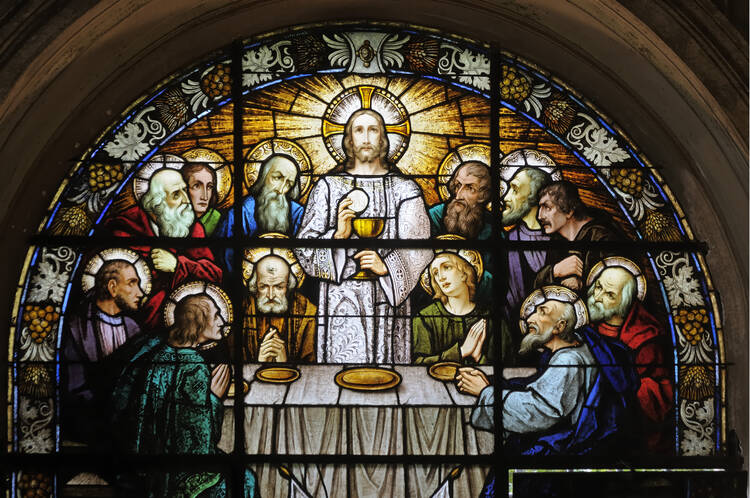A Reflection for the Feast of Sts. Philip and James
Find today’s readings here.
I am the way and the truth and the life. No one comes to the Father except through me.
What do Jesus’ Apostles think is happening at the Last Supper? They seem to have realized that big things are afoot, but they haven’t put all the pieces together. Though they weren’t always too quick on the uptake, it would have been hard to ignore the significance of statements like, “I will be with you only a little longer” (Jn 13:33), and “One of you is going to betray me” (Jn 13:21). Unsurprisingly, this kind of talk leaves them alarmed, confused and perhaps a bit emotional.
So when Jesus asserts that everything will be fine because, “You know the way to the place I am going” (Jn 14:4), Thomas is frustrated. Lord, we have no idea where you’re going! How could we possibly know the way?
In reply, Jesus makes one of his most important statements, which echoes across the centuries. He is the way. He is the truth. Only through him can anyone be saved.
What does it mean for a person to be “the way”? When the Mandalorian declares that “this is the way,” we understand him to be referring to a set of rules and customs that infuse order and purpose into the chaos of a complex universe. When a person claims to be “the way,” that is harder to understand.
By a similar token, what does it mean for a person to be “the truth”? Normally, we understand statements to be true or false. We can thus understand how truth might be found in a creed or a book. A person could expresssomething true in a speech or a prayer. But how can a person be truth?
Perhaps the best way to understand this is through the third piece of the triad. Jesus is “the life.” We know, of course, that he is about to die and then come back to life. The grace won through Christ’s victory over death can now enable the rest of us to inherit eternal life. In a sense, perhaps Jesus is the way and the truth because he is the life. Loving Jesus is the way to salvation. Believing in him is the key to immersing ourselves in the truth. And if we do those things, we will have life eternal.
St. Paul clearly considered that this was the single most important message that anyone could share. This Epistle is particularly moving in that it shows Paul’s keen awareness that he was quite different from the other Apostles: Unlike them, he never knew Jesus personally in his earthly life, and he even had a history of persecuting the faithful. He never heard Jesus explain that he was “the way, the truth, and the life.” In the social circles that Paul occupied after his conversion, it probably felt as though everyone else had personal stories of Jesus and the time they spent together. Everyone else believed before he did: “Last of all, as to one born abnormally, he appeared to me.”
He might have felt some regret or the shadow of an inferiority complex. At the same time, Paul knew that in the end, this personal history was not what matters. The thing “of first importance” was what he has received, through faith, along with all other sincere Christians: that Christ died for our sins, was buried and rose on the third day. This, he assured his readers, is the thing “in which you also stand” and through which “you are also being saved.” Throughout his ministry, Paul retained this ferocious intensity, clearly convinced that he had been charged with telling as many people as humanly possible that Jesus is the way.
The way is still open. The truth is still on offer. Jesus is still present in every Mass, infusing life into our souls. There is absolutely no reason we cannot go where he has gone.








